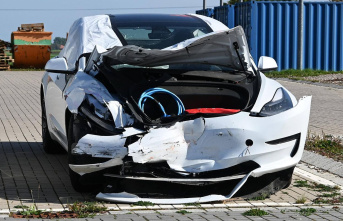In Japan, consumer prices have risen at their highest rate in more than 40 years. The inflation rate for consumer goods excluding fresh food rose by 3.7 percent in November compared to the previous year, the government said in Tokyo on Friday. This is the strongest increase since 1981. Including the price of fresh food, the inflation rate was 3.8 percent. Both values were thus slightly above the increase in October.
At 3.7 percent, the development of consumer prices is still well below that of other western countries such as the USA, Great Britain or Germany. At the same time, the inflation rate is also significantly higher than the target of two percent set by the central bank. Like many countries, Japan is suffering from the economic effects of the Russian war of aggression in Ukraine, which includes, among other things, increased energy prices.
The latest data are fueling speculation that the Bank of Japan (BoJ) may soon take further action after this week's surprising change in strategy. The Bank of Japan surprised financial markets on Tuesday by announcing an easing of the long-term bond yield range. This was seen as the first step towards tightening monetary policy.
Until Tuesday, the Japanese central bank had always emphasized that it was the only major central bank in the world to maintain its strategy of extremely loose monetary policy and support for domestic demand. The BoJ stuck to its program of keeping borrowing costs at an all-time low. However, it decided to allow 10-year Japanese government bond yields between minus 0.5 percent and 0.5 percent. That's above the current range of minus 0.25 percent and 0.25 percent.
At the same time, Prime Minister Fumio Kishida's cabinet on Friday approved a state budget of a record 114.4 trillion yen (815 billion euros) for the fiscal year beginning April 1, 2023. More than a third of the state budget for the coming year is earmarked for social spending. The background is the rapid aging of society, which is happening faster in Japan than in any other industrialized country and is driving up health care costs.
Military spending is also set to increase dramatically, to 6.8 trillion yen. In the current fiscal year, the defense budget, which was previously limited to one percent of gross domestic product, still amounts to 5.4 trillion yen. Kishida recently announced an increase to two percent of the country's economic output. With the massive military build-up, Japan is reacting to China's striving for power and the threat from North Korea. Japan wants to spend around 43 trillion yen on its defense over the next five years.
Despite record tax revenues, the government has to issue more government bonds to finance the national budget. However, Kishida is not planning any bonds to finance the military build-up, instead he wants to raise taxes. He was criticized for that. His already poor poll numbers continued to fall. With more than twice its economic power, Japan has the highest national debt among leading economic nations.









